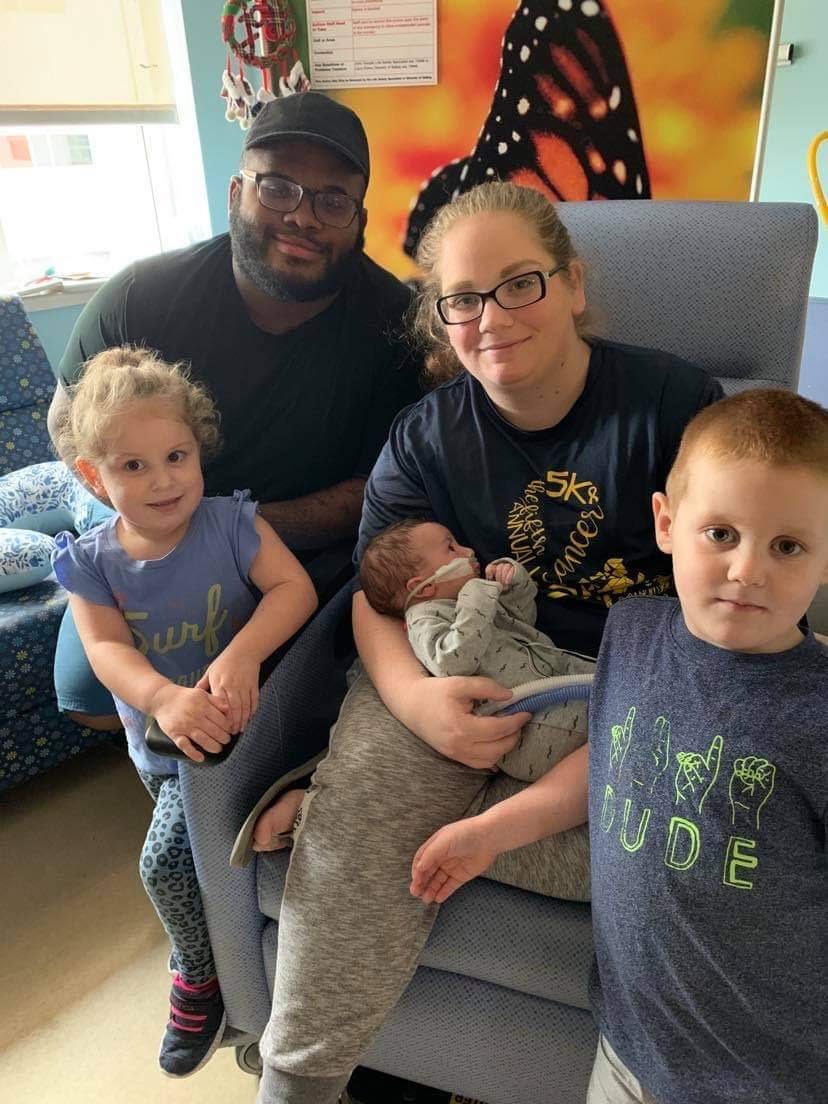Empowering CDH Siblings
Any time a new baby joins a family, existing siblings are bound to feel a little confused and misplaced as they forge their new role in the family. Medical complexity can add an even more challenging dynamic, as these siblings may have witnessed some pretty scary stuff watching their parents navigate a stressful pregnancy or even in the hospital setting. This can lead to feeling unmoored or powerless, but siblings of medically complex kids are true heroes too – resilient and strong, with the potential to carry an incredible amount of knowledge and know-how. This is a great time to think about ways to empower and engage your kids, so they feel like participants rather than spectators in the new culture of your family.
Kids Can Help
As any parent who has ever had a toddler or preschooler knows, young children absolutely LOVE to help with household chores and errands. With that in mind, please be mindful not to force any of these activities on your older children. Let them show interest first – this respects the transitions and helps to preempt any feelings of anger that they might have at having extra stuff to do. If they are in school, please let their teachers and administrators know what is happening in your family. You may be surprised at the love and resources they can share with you and, at a minimum, this will help your children's teachers support your child more holistically. There are some great ways to help children at each stage of life.
At Any Age
Let your kids pick out outfits and toys for a new baby
As you pull out hand-me-downs, use that as a time to bring up memories – “You had so much fun in this bouncer when you were a baby!” Bring out pictures as well, so that it doesn’t feel to your child that everything is all about the new baby.
Talk up the relationship your existing children will be able to have with a new sibling – “Big sisters and brothers are such good friends for little siblings. I can’t wait to see you play together! What games do you want to play with the baby? What do you want to teach them?”
Toddlers and Preschoolers
Supply runners! Let your littles grab things like diapers and wipes, split gauze, or any other supplies you might need while you are attending to a baby. You will be surprised how useful and gratifying it can be for kids this age to feel helpful.
Explain everything you are doing. If your older child is interested in changing cannulas or setting up a feeding pump, talk them through it. If they aren’t interested, don’t force it.
Sanitation patrol: When new visitors come to see the baby, put your preschooler in charge of telling everyone to wash their hands or attend to whatever other precautions you have in place in your home for visitors.
In small, safe ways, help your older child feel like a part of the team by asking them to look after the baby while you do something simple like going to the bathroom or running to the kitchen for a cup of coffee. These little moments help kids this age feel important to your household running.
Elementary Kids
To your level of comfort and your child’s maturity level and motor skills:
Have your older children stroke the baby’s head during tough moments, like changing face tape. Let them sing songs and tell stories to help distract the baby.
Older kids may be able to do things like apply tape to gauze around a g-tube or to the face to secure oxygen, especially with help and guidance from you.
Carrying supplies: You’ll be amazed at how much longer and more complicated even loading up the car can be with multiple children and multiple packs of things. Solicit help from your older kids – you’ll need it!
Teens and Preteens
Kids this age are super capable, and, if they are interested and you feel safe about it, let them do many of the things that you do – changing gauze or tape, bathtime, dealing with feeding pumps, helping you make the calculations for feeding rates and times, and so on. Be most cautious around medications.
Enroll kids this age in CPR classes, if they are willing and interested.
Charge them with helping you learn new things. For example, if you’re looking for good first foods, let them do the Googling.
Encourage them to talk about it with their friends and peers. Make sure they know there’s no shame in your household regarding anyone’s health status.
Maintaining Relationships
Any time a new sibling is brought into the family, it is essential to ensure your kids know that your love isn’t dividing into smaller chunks but growing as your family grows. Know that having the intention of doing this is 90% of the battle and is something your kids will implicitly appreciate, even if they cannot vocalize it.
Set aside time to focus solely on your older kid(s) and encourage the same for your spouse or partner. As stated before, encourage them to help as they are interested, but try not to force it on them. Some older kids may resent being asked to give care more than they feel cared for. This is natural – do not blame yourself if this happens.
Regularly check in with your older kids about the whole scope of their lives. Your life may end up, for a time, feeling like it revolves solely around a medically complex child, but your older kids still have school, friends, hobbies, and interests. Ask about those things. Let them give you every intimate detail about a new video game or a school assignment they are excited about.
All in all, what all of this advice boils down to is truly one main idea: that love comes first. If you keep this idea central to your family's ethos and ensure that your older kids always understand how important it is to you, you have already done the most important thing.




